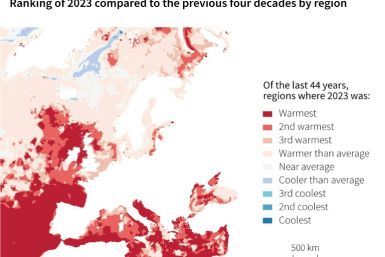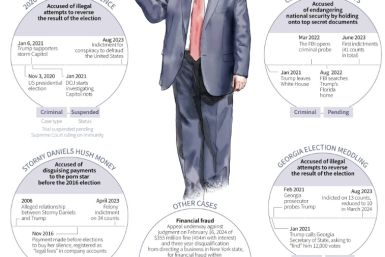Australian Stock Market Report – Afternoon 1/31/2013
MARKET CLOSE
(4.30pm AEDT)
As beautifully as the sun shines, it always sets. This is one way to poetically describe what took place on the Australian sharemarket today. After 10 consecutive sessions of gains, the local market slipped into negative territory. The All Ordinaries Index (XAO) eased by 0.4 per cent or 18.1 pts to 4901.0.
Over the past 4 weeks the Australian sharemarket has improved by over 5 per cent, making it the second best start to a new year since 1994. Over the past 10 days alone, the market improved by around 3.7 per cent.
Global markets ended lower last night which was one of the big drags on our market today. The Dow slipped by 0.3 per cent while the major European players slipped by 0.5 per cent. This was partly due to the contraction of the U.S economy in the final quarter of 2012. The decline was largely following a sharp fall in defence spending. North America officially spends more on its defence and military than the next 20 nations combined.
Australia's biggest supermarket chain, Woolworths (WOW) slumped by 1.3 per cent or 41 cents to $31.24 today following the release of its quarterly sales numbers. Sales rose by 3.2 per cent to $29.73 billion, liquor sales jumped by 4.7 per cent, whereas supermarket sales gained 3.7 per cent. Big W, which is also under the Woollies' banner, has underperformed.
The competition watchdog gave the go ahead to Virgin Australia (VAH) to purchase regional airline Skywest for $98 million. VAH shares rose by 1.18 per cent or 0.5 cent to 43 cents. The country's second biggest airline is also a week away from receiving a decision by the ACCC on its $35 million offer for a 60 per cent stake of Tiger Australia.
The insurance companies had a slow start to the week following news of the Queensland floods, however have performed well since. One of the biggest players in the industry, QBE Insurance (QBE) rose by 1.45 per cent or 17 cents to $11.92 while Insurance Australia Group (IAG) edged higher by 0.6 per cent or 3 cents to $5.02. IAG is the company behind NRMA.
The major banks were a drag on trade today, with a flat finish for ANZ Banking Group (ANZ) which closed at $26.58. National Australia Bank (NAB) fell by 1.01 per cent or 28 cents to $27.36, Westpac (WBC) eased by 0.46 per cent or 13 cents to $28.04 and Commonwealth Bank of Australia (CBA) slipped 0.39 per cent or 25 cents to $64.45.
Following on from two straight days of gains, the miners also finished in the red. Rio Tinto (RIO) dropped by 1.13 per cent or 76 cents to $66.36 while the larger BHP Billiton (BHP) lost 0.37 per cent or 14 cents to $37.48.
On the economic front, import prices rose by 0.3 per cent in the December quarter (October to December), however are still down 0.9 per cent on a year ago. Essentially this shows that price pressures are under control and won't make rate cuts any more unlikely. The market is still factoring in only a 25 per cent chance of a cut in February, while a March cut seems more likely.
Over the past three months there has been a strong rise in the number of newly built properties being sold. One of the main drivers for this continues to be State government grants. New home sales rose by 6.2 per cent in December, adding to November's 3 per cent rise; the strongest lift in sales in close to four years.
Lending rose by 0.4 per cent in December after a flat result in November. This is further proof that Australians are still conservative when it comes to borrowing funds.
CommSec Economist Savanth Sebastian said that "The Reserve Bank is unlikely to get overly excited by the latest batch of data. There are some reasons for encouragement but overall the data doesn't highlight any significant revival in activity patterns across the economy. However the ongoing improvement in new home building is certainly welcome news and will provide the central bank with an additional level of comfort. Additional housing supply should ensure that home prices don't record excessive growth while also having a multiplier effect across the economy in terms of economic activity."
Tonight in Europe, German retail spending, inflation and employment numbers will be issued.
In the U.S, the December personal income statistics will be out in addition to profit results from both Colgate Palmolive and Dow Chemical.
Volume of shares traded came in at 1.84 billion today, worth just $5.42 billion. 480 shares were up, 507 were weaker and 388 ended unchanged.
At 4.30pm (AEDT) on the Sydney Futures Exchange, the ASX24 futures contract is up 0.08 per cent or 4 pts to 4849.
Due to the end of daylight savings in Europe, most major European markets are now trading between 7pm (AEDT) and 3.30am (AEDT). Futures are currently pointing to fall at the start of trade tonight in Europe.
U.S futures are also pointing to a slight drop on the open tonight. Due to the start of daylight savings in Australia and its end in the U.S, American markets will now be trading between 1.30am (AEDT) and 8am (AEDT).
Turning to currencies, the Australian dollar (AUD) lost some ground against the greenback throughout the day and buys US103.9 cents, is trading at £65.7 pence and €76.6 cents.
Australia is a commodity based economy, with commodities in general accounting for almost 80 pct of all our exports over the past nine months. In essence, when the going gets tough globally, there is fear of less demand for our commodities, which tends to result in a weaker AUD.
[Kick off your trading day with our newsletter]
More from IBT Markets:
Follow us on Facebook
Follow us on Twitter
Subscribe to get this delivered to your inbox daily






